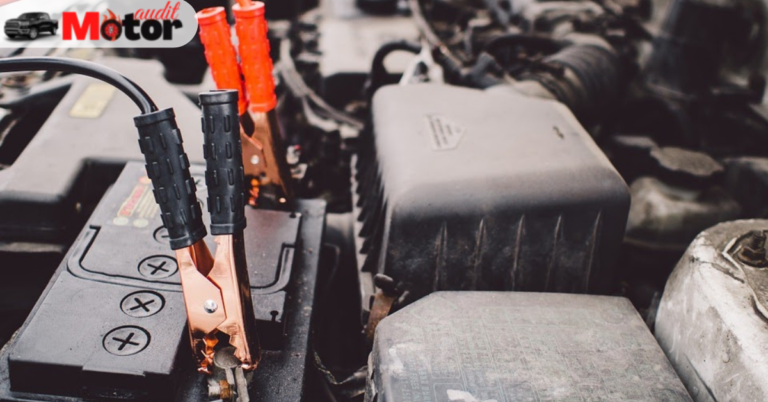Why My Car Making Humming Noise at 40 MPH?
Cars with strong and loud engines might feel good at times. But most of us prefer that quiet and peacefulness while on a drive. “Why my car making humming noise at 40 MPH!” If you’ve been mumbling this as you drive, you’re not alone. Any unusual sounds emitting from your vehicle can be annoying.
If the car is making a humming noise at 40 mph or over the speed, the most probable cause could be the drivetrain. Bearings, transmission, and drive axles move when the car moves. If any of these parts have worn out, the humming noise is bound to produce.
To pinpoint the exact cause of humming noises in your car, you need more information. We have discussed all the possible factors that can cause your car to make humming noise at 40 mph.
Why My Car Making Humming Noise at 40 MPH?: Cause and Possible Solutions
To solve the humming noise problem, we need to go through the possible reasons behind this issue.
1. Loose Wheel Bearings
If the humming gets louder as you drive faster, then the problem is probably with the car wheel bearings. Wheel bearings or tires are the most probable causes. Turn the steering a little as you drive.
Take the car for a test spin first to determine the exact source of the sound. It’s better to take someone else in the backseat to see from where they can hear the sounds coming from. You need to determine if the sounds are coming from the front or rear end of the car.
Check the wheel bearings of the car for further issues. If the bearings seem slightly off, try lifting the car off the ground and spin each tire. That should tell you whether the bearings are loose or if there’s another reason for the noises.
2. Check If the Tires Is Poor
Any humming or mild grinding noise can be caused by poor tires. The noise might sound louder as you keep accelerating. If the tires are rather old and ‘feathered’ (tires with uneven treads), they can cause such noise when the car is in motion.
Feathered tires are often caused by bad suspension. If the suspension is not at its peak, your car tires might wobble on the road instead of rolling over smoothly. Over time, that can cause treads to appear in the tires, eventually starting to wear.
Unmatched or uneven tires can be another reason to cause humming noise. If your car has different sets of tires and is not equally lined up with the axis, it can cause radial runout.
Also, if one of the tires is old and others are new, that can generate humming and grinding noises. Such diversity would mean one tire being more worn-out than the rest. This uneven friction on the road is a problem that manifests itself through humming noise as you accelerate.
3. Faulty Driveshaft
Typically, a driveshaft should be straightly aligned and properly balanced. It helps to match the car as it gains speed. But if there’s any rust or signs of wear of the driveshaft, it can cause the car to hum while you drive.
So, if you think the driveshaft is imbalanced, you can try straightening it out yourself. It’s an easy job and shouldn’t require any help from mechanics. But if the sound still remains after straightening the driveshaft, then it might be time for your car to visit the workshop.
4. Leak in the Vacuum Hose
What if the problem is internal and not external? We’ve suggested places to check for the car’s humming noise, but all of them are outside of the car. Now let’s try something on the inside, and it’s better to check all the possibilities.
If there’s any problem with your car’s vacuum hose, then you might hear some vibrations or humming as the car goes 40 mph or beyond.
A vacuum hose in the car manages the air to fuel ratio to ensure optimum engine performance. If there’s any leak in the hose, then that ratio would be disturbed. This would, in turn, cause the engine to perform poorly.
If left unchecked, this can cause further problems in your car. You might notice a decrease in fuel efficiency.
Not just at 40 mph, low vibration or humming noises can come from the car even when the car is not in motion (considering the problem lies with the vacuum hose). You can try running the engines without accelerating to see if any sounds emit. This would help confirm whether the vacuum really is the problem or not.
If there’s indeed a leak in the vacuum hose, you have to repair it. But replacing the hose is a better idea since repairing the leak might only serve well for a short period.
How Much Would It Cost to Fix a Car’s Humming Noise?
Fixing the wheel bearings might cost you around $350 or more. If you need to replace the tires, each one might cost from $200 and more including labor cost. Vacuum hose repair cost might range from $150 to $950.
Can You Fix the Car’s Humming Noises by Yourself or See a Mechanic?
The answer depends on the problem itself. If the issue’s with driveshaft, you can fix it by yourself. Others may require a visit to the workshop.
How to Fix Problems Caused by Humming Noise at 40 MPH?
And now, let’s move on to solving the humming noise issue of your car. Any of the strategies might be applicable for your car, so keep trying the next one if any of them doesn’t work.
Tighten the Wheel Bearings
If loose wheel bearings are causing the humming noise, then simply fixing them will make the problem disappear. You can visit a mechanic if you don’t feel confident to fix it by yourself.
Try Replacing the Tires
If the problem is with your tires, replace them with a set of new one. Make sure to buy from good brands instead of cheap ones. You might end up spending again on them if you try to save some money now.
Fix the Driveshaft
If you find that the driveshaft is imbalanced, you can try straightening it out by yourself. It’s an easy job and shouldn’t require any help from mechanics.
But, if the sound still remains after straightening the driveshaft, then it might be time for your car to visit the workshop.
Fix the Leak on the Vacuum Hose
If you found a leak in the vacuum hose, you’ve to run to a repair shop to get it fixed. Don’t ignore and continue driving with a leak in the vacuum hose.
FAQs
How Do I Know If The Wheel Bearings Are Loose?
The most common sign of a bad or loose wheel bearing is a humming noise generating from the vehicle as the speed goes up. You might misunderstand this as a problem with your car engine.
But, try to listen if there is some low grinding noise associated with the humming sounds. If yes, then it’s a possible sign of loose wheel bearings.
What Does It Mean If My Car Tires Are Humming?
Humming tires can either mean uneven wear and tear on the tires or bad wheel bearings. If you hear any humming noise coming from under the car, have the wheel bearings checked. It’d also be a good idea to get the tires rotated.
Can Bad Tires In A Car Make Humming Noise?
Yes, bad wheel bearings or worn-out tires can produce some humming or grinding noise as you drive.
Conclusion
A thorough inspection would help you to find the problem faster. Your mechanic would be able to quickly develop a solution when they’ve more information at hand. If you follow all that we’ve mentioned, you won’t have to yell, “Why my car making humming noise at 40 MPH!” anymore.
To identify the cause of your car making a humming noise at 40 mph, pay attention while you drive. Note how the noise changes as you push to accelerate and the brakes. You should also see whether the humming sounds different as you turn the steering wheel.
- Read Also>> What To Do After Replacing MAF Sensor & When To Replace?
- Read Also>> Why Oil Light Comes On and Off But Oil is Full? (Fix Now)
- Read Also>> Why My Car Tire Making Womp Womp Noise When Driving?
- Read Also>> Signs & Symptoms of Bad MDS Solenoid (Explained)
- Read Also>> 4 Symptoms to Detect Air in Power Steering Of Your Vehicle


